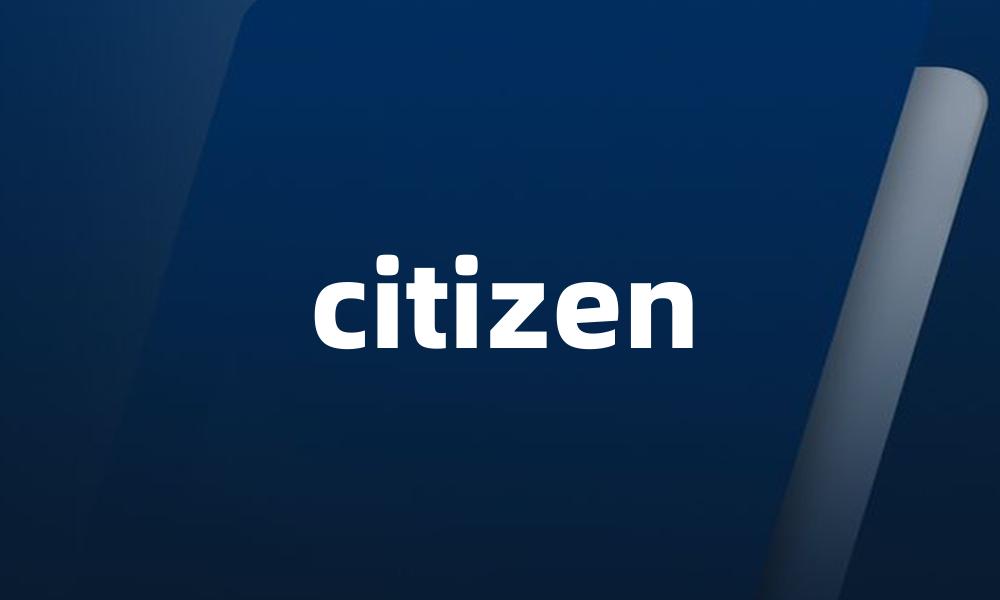
词汇分析:citizen
“Citizen”是一个名词,主要指一个国家或地区的合法居民,享有该地区的权利和义务。在不同的上下文中,citizen 可能有不同的含义或用法。该词没有形容词形式,但可以与形容词结合使用以描述特定的公民身份或状态,如“active citizen”(积极公民)或“responsible citizen”(负责任的公民)。
词语辨析
在不同文化和社会背景下,“citizen”可能与“inhabitant”(居民)和“national”(国民)有所不同。“Inhabitant”通常指某地区的居民,不一定具有法律身份;而“national”则强调与国家的法律关系。
近义词
- inhabitant(居民)
- national(国民)
- resident(居民)
反义词
- foreigner(外国人)
- alien(外星人,外来者)
用法
在法律和政治语境中,“citizen”通常用来描述具有某国国籍,并且享有该国法律保护和权利的人。它也可以用于描述参与公共事务的市民身份。
例句
-
The **citizen** should vote in the elections.
每位公民都应该参加选举投票。
-
As a responsible **citizen**, he volunteers at the local shelter.
作为一名负责任的公民,他在当地收容所做志愿者。
-
Every **citizen** has the right to free speech.
每位公民都有言论自由的权利。
-
The **citizen** protested against the unfair law.
这位公民抗议不公正的法律。
-
It is important for every **citizen** to understand their rights.
了解自己的权利对每位公民来说都很重要。
-
The **citizen** was awarded for his bravery.
这位公民因其勇敢行为而获奖。
-
She feels proud to be a **citizen** of her country.
她为成为自己国家的公民感到自豪。
-
Many **citizens** participated in the community clean-up.
许多公民参与了社区的清洁活动。
-
The **citizen** spoke at the town hall meeting.
这位公民在市政厅会议上发言。
-
He was born a **citizen**, but now lives abroad.
他出生时是一个公民,但现在住在海外。
-
Being an informed **citizen** is crucial for democracy.
作为一个知情的公民对民主至关重要。
-
Some **citizens** are concerned about privacy issues.
一些公民对隐私问题感到担忧。
-
The **citizen** demanded better public services.
这位公民要求改善公共服务。
-
Every **citizen** has a role in shaping the future.
每位公民在塑造未来中都有自己的角色。
-
The **citizen** participated in a debate about immigration.
这位公民参与了一场关于移民的辩论。
-
Young **citizens** are encouraged to engage in politics.
年轻的公民被鼓励参与政治。
-
She is an active **citizen** in her community.
她是社区中一位积极的公民。
-
The **citizen** rights movement gained momentum.
公民权利运动获得了动力。
-
He considers himself a global **citizen**.
他认为自己是一个全球公民。
-
The **citizen** was involved in local governance.
这位公民参与了地方治理。
-
Some **citizens** feel disconnected from their government.
一些公民感到与政府脱节。
以上例句展示了“citizen”在不同语境中的用法,强调了其在社会、文化和政治中的重要性。

 小皮
小皮